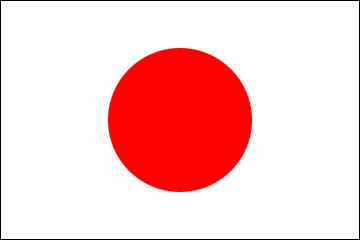At a Reception to Commemorate Maritime Security (VBSS) Training Course
2019/12/1
Ambassador's Speech
Major General Kamal Gunaratne, Secretary to the Ministry of Defence,
Vice Admiral Piyal De Silva, Commander, the Sri Lankan Navy,
Mr. Ahmed Jawal, Acting Secretary to the Ministry of Foreign Affairs,
Ms. KATO Miwa, the Director of Global Operations, UNODC,
Ms. Hanaa Singer, United Nations Resident Coordinator in Sri Lanka,
Mr. Alan Cole, Head of Global Maritime Crime Programme of UNODC,
Your Excellencies Ambassadors and High Commissioners,
High Officials from the Government of Sri Lanka and the Ministry of Foreign Affairs,
Distinguished Guests,
Ladies and Gentlemen,
Good evening.
First of all, let me warmly welcome you all to my residence this evening. I am greatly honored to host this reception to commemorate the successful implementation of a VBSS training course by UNODC’s Global Maritime Crime Programme (GMCP in short). To be sure, VBSS stands for Visit, Board, Search, and Seizure, connoting the sequence of operational procedure at sea, and the current course will be successfully concluded on November 30, coming Saturday, in Trincomalee. Since Japan has been a sponsor of the on-going course, we availed this opportunity to host this reception, together with UNODC, with a view to strengthening our common interests of “free and open seas”. Being honored with active participation by close partners of GMCP who share the vision of Free and Open Indo-Pacific Oceans (FOIP in short), I am confident that this reception will provide valuable opportunity to forge closer collaboration towards our common interests.
Ladies and Gentlemen,
Freedom of navigation and the rule of law are being commonly recognized as the bedrock of affluence and prosperity. Admittedly, significance of Sri Lanka, located at the pivot of the east-west sea lanes, in maintaining maritime safety and security can’t be emphasized enough in view of ever-increasing traffics on the Indian Ocean on the one hand and growing transnational organized crime at sea on the other. Indeed, the establishment of the headquarters of GMCP in Colombo itself implies a clear statement of such significance.
In this context, VBSS training courses, which have been carried out with the strong support of Sri Lankan Navy since 2017, play a key role in responding to the mounting challenges in the maritime domain. An unique program of employing a real dhow boat to enhance the law enforcement capabilities and regional cooperation among Pacific and Indian Ocean states is truly innovative, which is a product of Mr. Alan Cole’s many years’ experience in the Navy. Last year, I had an opportunity to observe demonstration of operational exercise aboard the dhow boat, which convinced me how truly effective the VBSS trainings are in yielding tangible outcome of seizing increased narcotics on the seas. To cite a few recent cases from the media reports, 224 Kg of Heroin were seized by Sri Lankan Navy off the coast of Galle early this month, while 150Kg of Heroin were seized by Sri Lankan, Indian and Maldivian coast guards off the coast of Kochi last month.
Ladies and Gentlemen,
The vision of FOIP corresponds closely to the above endeavors of GMCP. Envisaging that the Indo-Pacific Oceans should be “Global Commons” or “International Public Goods” which benefit all the countries, littoral and non-littoral alike, FOIP is also a vision founded upon mutual respect and win-win cooperation without confrontation, as Dr. TAKAHARA Akio, Dean of Graduate School of Public Policy of the University of Tokyo, stressed during his lecture in Colombo two months ago.
Taking this opportunity, I would like to reiterate salient features of the vision of FOIP which are recapped in the following three pillars:
- Strengthening the rule of law, especially freedom of navigation;
- Enhancing connectivity through “quality infrastructure”; and,
- Maintaining maritime peace and security.
Let me not forget to add that the vision of FOIP is an inclusive concept open to all countries that share its basic principles. Today, after my speech, we have arranged viewing of a short video clip which will illustrate Japan’s strong commitment to realizing free and open maritime order. I hope this video will enhance better understanding of the vision of FOIP that the Government of Japan has been promoting recently with greater emphasis.
Ladies and Gentlemen,
Once again, I would like to commend Mr. Alan Cole and his dedicated team, and not least, Ms. KATO Miwa’s efforts in maintaining free and open maritime domain in the Pacific and Indian Oceans, and on this note, with my heartfelt appreciation for your kind presence this evening, I would like to conclude my welcoming remarks.
Tonight, my chef prepared sushi, tempura, and Japanese noodles (Soba). Please enjoy the evening.
Thank you very much for your kind attention.
